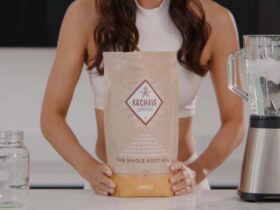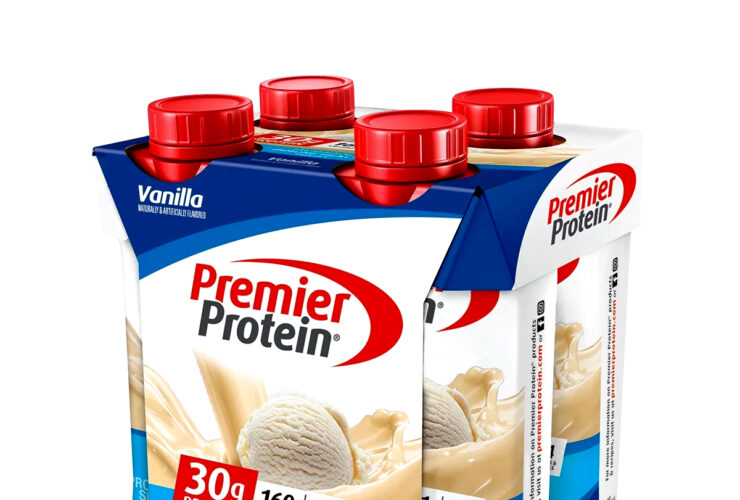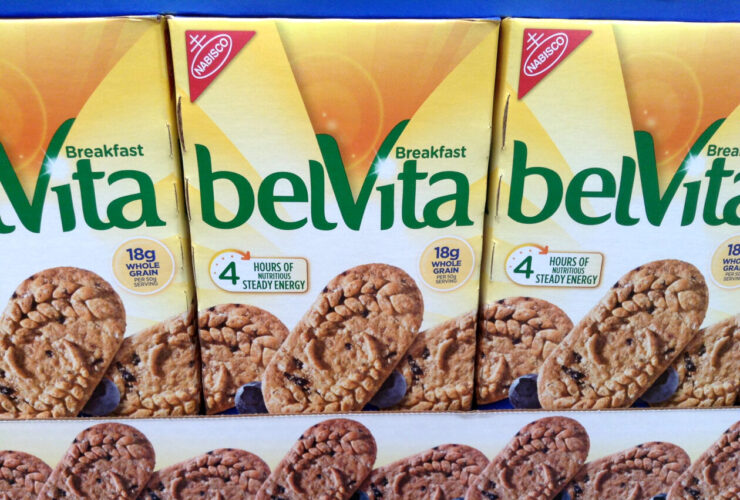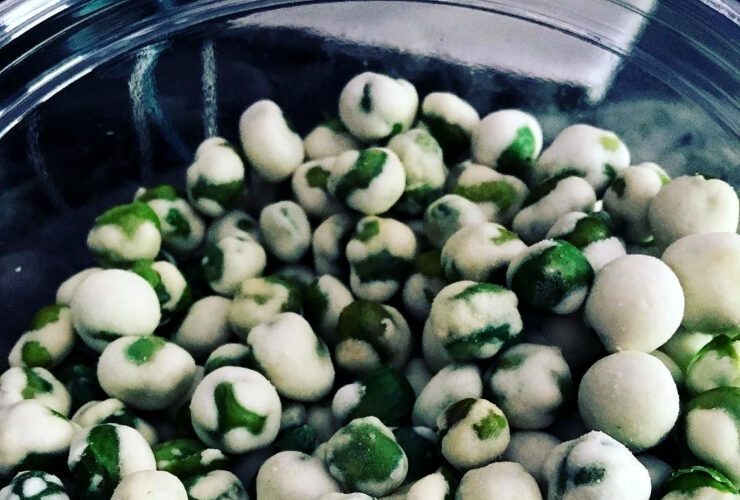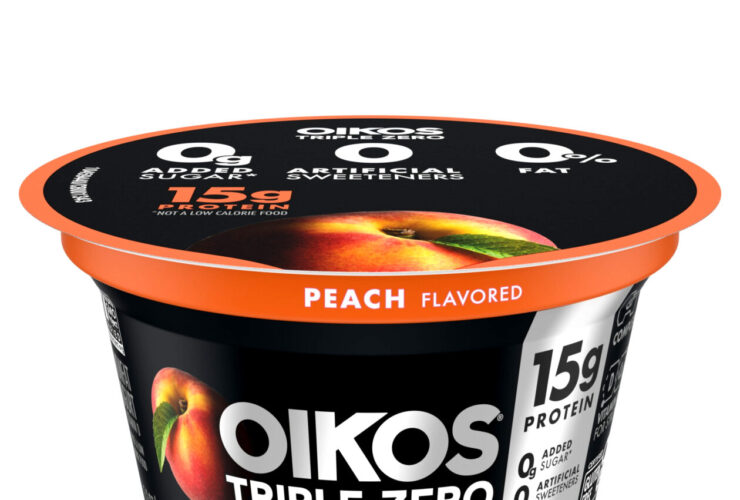Introduction
For men of all ages, maintaining prostate health through nutrition and lifestyle choices is crucial. The prostate gland greatly influences male reproductive health, and conditions like benign prostatic hyperplasia (BPH) and prostate cancer can have a significant adverse effect on quality of life. Thus, general health must comprehend how Nutrition supports prostate health.
Many people wonder what foods to consume or avoid to support a healthy prostate, among other queries and concerns regarding prostate health. These frequently asked questions are addressed in this section, along with insightful information about food choices that might support prostate health. We may better understand the relationship between diet and prostate health by examining the nutritional value of different foods and talking about the results of scientific studies.
For those who want to improve their prostate health through Nutrition, this section will provide helpful guidance and recommendations based on evidence-based research findings and conventional dietary habits. By offering a thorough summary of nutritional factors and possible health hazards related to specific foods, readers may make well-informed decisions to support their prostate health properly. Now, let’s explore the realm of Nutrition and how it affects prostate health.
The 10 Worst Foods for Prostate Health

Diet plays a significant role in prostate health, with certain foods potentially exacerbating or alleviating prostate issues. In this section, we’ll delve into the ten worst foods for prostate health, shedding light on their adverse effects.
- Red Meat:
Excessive consumption of red meat, such as beef, pork, and lamb, can exacerbate prostate issues due to its high saturated fat content. Studies suggest that a diet high in red meat may increase the risk of prostate enlargement and prostate cancer. Opting for leaner protein sources like poultry, fish, or plant-based alternatives can be healthier for prostate health.
Dairy products like milk, cheese, and butter contain saturated fats and may contribute to inflammation, which can negatively impact prostate health. Some research indicates a potential link between dairy consumption and an increased risk of prostate cancer. Choosing alternatives like almond milk, soy-based products, or dairy-free cheese can benefit those looking to support their prostate health.
- Caffeine:
Caffeine, found in coffee, tea, and energy drinks, can worsen urinary symptoms associated with prostate enlargement. It acts as a diuretic, increasing urinary frequency and urgency, which can be bothersome for individuals with prostate issues. Limiting caffeine intake, especially in the evening, may help alleviate urinary symptoms and promote better sleep quality.
- Alcohol:
Excessive alcohol consumption has been linked to adverse effects on prostate health, including an increased risk of prostate cancer. Alcohol can also irritate the bladder and exacerbate urinary symptoms associated with prostate enlargement. Moderation is vital, and individuals should aim to limit alcohol intake to reduce the risk of prostate-related complications.
- Processed and Pickled Foods:
Processed and pickled foods are often high in sodium, which can contribute to urinary tract symptoms and increase the risk of prostate enlargement. The high sodium content in these foods can lead to water retention and exacerbate inflammation. Opting for fresh, whole foods and limiting processed and pickled foods can help maintain prostate health.
- High-Sodium Foods:
Foods high in sodium, such as canned soups, processed meats, and salty snacks, can negatively impact prostate health by increasing blood pressure and promoting water retention. High sodium intake is associated with an increased risk of urinary tract symptoms and may contribute to prostate enlargement. Choosing low-sodium alternatives and avoiding excessive salt in cooking can support prostate health.
- Fried Foods:
Fried foods like french fries, fried chicken, and potato chips are high in unhealthy fats and calories, which can contribute to weight gain and inflammation. Diets high in unhealthy fats have been linked to an increased risk of prostate issues, including prostate cancer. Choosing baked, grilled, or steamed options over fried foods can help maintain prostate health.
- Sugary Foods and Beverages:
High sugar intake from foods and beverages like soda, candy, and pastries can promote inflammation in the body and negatively impact prostate health. Diets high in sugar have been associated with an increased risk of prostate issues, including BPH and prostate cancer. Opting for whole fruits as a natural sweetener and reducing consumption of processed sugary foods can support prostate health.
- High-Cholesterol Foods:
Foods high in cholesterol, such as fatty cuts of meat, egg yolks, and full-fat dairy products, can contribute to arterial plaque buildup and inflammation, potentially affecting prostate health. Diets rich in cholesterol have been linked to an increased risk of prostate issues, including BPH and prostate cancer. Choosing lean protein sources and incorporating heart-healthy fats like avocado and nuts can benefit prostate health.
- Trans Fats:
Trans fats, found in processed foods like margarine, baked goods, and snack foods, can increase inflammation and contribute to cardiovascular issues, which may indirectly impact prostate health. Diets high in trans fats have been associated with an increased risk of prostate issues, including BPH and prostate cancer. Reading food labels and avoiding products containing trans fats can help support prostate health.
Optimal Dietary Choices for Prostate Health

When it comes to supporting prostate health through diet, making informed food choices can play a crucial role in reducing the risk of benign prostatic hyperplasia (BPH) and prostate cancer. Incorporating foods rich in antioxidants, healthy fats, and essential nutrients can support the prostate gland and promote overall well-being.
- Salmon:
Rich in omega-3 fatty acids, salmon is an excellent choice for prostate health. These healthy fats have anti-inflammatory properties that can help reduce inflammation in the prostate gland, potentially lowering the risk of BPH and prostate cancer. Aim to include fatty fish like salmon at least twice weekly for optimal benefits.
- Tomatoes:
Tomatoes are packed with lycopene, a powerful antioxidant known for its prostate-protective properties. Lycopene has been shown to help prevent prostate cancer and may also reduce the risk of BPH. Cooking tomatoes can enhance lycopene availability, making tomato-based sauces, soups, and juices particularly beneficial for prostate health.
- Berries:
Berries like strawberries, blueberries, raspberries, and blackberries are rich in antioxidants, which help combat inflammation and oxidative stress in the body. These delicious fruits also contain vitamins, minerals, and fiber, making them an excellent choice for supporting overall health and prostate function.
- Broccoli:
Cruciferous vegetables like broccoli are packed with sulforaphane, a compound shown to have anti-cancer properties. Consuming broccoli and other cruciferous veggies regularly may help reduce the risk of prostate cancer and support prostate health. Steaming or lightly cooking broccoli can help preserve its nutritional value.
- Nuts:
Nuts are a great source of zinc and selenium, minerals that play essential roles in prostate function and hormonal balance. Incorporating a variety of nuts like almonds, walnuts, and Brazil nuts into your diet can help support prostate health and overall well-being. Enjoy them as a snack, or add them to salads, yogurt, or oatmeal for an extra nutrient boost.
- Citrus Fruits:
Citrus fruits like oranges, lemons, limes, and grapefruits are rich in vitamin C, which has antioxidant properties that can help protect the prostate gland from oxidative damage. Including citrus fruits in your diet can provide essential vitamins and minerals while supporting overall immune function and prostate health.
- Green Tea:
Green tea is packed with polyphenols, which have been shown to possess anti-cancer properties. Drinking green tea regularly may help reduce the risk of prostate cancer and improve overall prostate health.
Incorporating these nutrient-rich foods into your diet can help promote prostate health and reduce the risk of prostate-related issues. Remember to focus on variety, balance, and moderation, and consider consulting with a healthcare professional or registered dietitian for personalized dietary recommendations tailored to your individual needs and health goals. By making informed nutritional choices, you can proactively support your prostate health and overall well-being.
Lifestyle Changes to Enhance Prostate Health

When it comes to safeguarding prostate health, dietary adjustments are just one piece of the puzzle. Incorporating holistic lifestyle changes can significantly contribute to overall well-being and reduce the risk of prostate-related issues. Here are some practical tips to consider:
- Prioritize Regular Exercise:
Engaging in regular physical activity is crucial for maintaining prostate health. Exercise helps improve blood circulation, supports healthy weight management, and reduces inflammation. Aim for at least 150 minutes of moderate aerobic activity or 75 minutes of vigorous activity each week, along with muscle-strengthening exercises two or more days per week.
- Manage Stress Effectively:
Chronic stress can take a toll on both physical and mental health, potentially impacting prostate function. Incorporate stress-reduction techniques such as deep breathing exercises, meditation, yoga, or mindfulness practices into your daily routine. Prioritizing relaxation and self-care can help alleviate stress and promote overall well-being.
- Stay Hydrated:
Proper hydration is essential for supporting urinary function and flushing out toxins from the body. Aim to drink adequate water throughout the day, typically around 8-10 glasses for most adults. Limiting the intake of caffeinated and alcoholic beverages, which can irritate the bladder and exacerbate urinary symptoms, is also advisable.
- Maintain a Healthy Weight:
Being overweight or obese is associated with an increased risk of prostate issues, including BPH and prostate cancer. Focus on adopting a balanced diet rich in whole foods, fruits, vegetables, lean proteins, and healthy fats while monitoring portion sizes. Incorporating regular exercise and physical activity into your routine can help you achieve and maintain a healthy weight.
- Avoid Tobacco Products:
Smoking has been linked to an elevated risk of prostate cancer and other health conditions. If you currently smoke, consider seeking support to quit smoking and reduce your risk of developing prostate-related issues. Quitting smoking can have numerous health benefits and contribute to better overall prostate health.
By incorporating these lifestyle changes into your daily routine, you can take proactive steps to enhance prostate health and reduce the risk of prostate-related complications. Remember that small, consistent changes over time can yield significant benefits for long-term well-being. Prioritize self-care, listen to your body, and consult with a healthcare professional for personalized guidance and support on maintaining optimal prostate health.
FAQs and Prostate Health Tips
Common Questions and Concerns:
Q: What beverages are recommended for prostate health?
A: Water is essential for prostate health as it helps flush out toxins and maintain urinary function. Green tea is also beneficial due to its high antioxidant content.
Q: What lifestyle factors contribute to prostate health?
A: Regular exercise, stress management, maintaining a healthy weight, and avoiding smoking are all crucial for supporting prostate health. Additionally, regular screenings and discussing concerns with a healthcare provider are essential.
Practical Tips:
Tip 1: Stay Hydrated:
Drinking daily water helps maintain optimal prostate function and supports urinary health.
Tip 2: Eat a Balanced Diet:
Focus on a diet rich in fruits, vegetables, whole grains, lean proteins, and healthy fats to provide essential nutrients for prostate health.
Tip 3: Maintain a Healthy Weight:
Excess weight can increase the risk of prostate issues. Aim to maintain a healthy weight through a balanced diet and regular exercise.
Dispelling Myths:
Myth: Dairy Products Are Essential for Strong Bones:
While dairy products are often associated with bone health, excessive consumption may increase the risk of prostate cancer. Opting for low-fat or non-dairy alternatives can still provide the necessary nutrients without the potential risks.
Myth: All Fats Are Bad for Prostate Health:
While saturated and trans fats should be limited, healthy fats like those in fatty fish, nuts, and seeds benefit prostate health and overall well-being.
By following these practical tips and dispelling common myths, individuals can take proactive steps to support their prostate health and reduce the risk of prostate issues. It’s essential to prioritize overall wellness through a balanced lifestyle and regular screenings to maintain optimal prostate health.
Conclusion
Maintaining prostate health is crucial for overall well-being and quality of life. Incorporating the right foods into your diet and making positive lifestyle choices can significantly reduce the risk of prostate issues and promote long-term health. Here’s a summary of key takeaways to keep in mind:
Embrace a Prostate-Friendly Diet:
Opt for a diet rich in fruits, vegetables, whole grains, lean proteins, and healthy fats. Regularly incorporate prostate-friendly foods like cruciferous vegetables, tomatoes, berries, fatty fish, nuts, and citrus fruits into your meals.
Stay Hydrated:
Adequate hydration is essential for prostate health. Drink plenty of water throughout the day to support urinary function and flush out toxins from your body.
Limit Harmful Foods:
Be mindful of foods that can negatively impact prostate health, such as red meat, dairy products, caffeine, alcohol, processed foods, and foods high in sodium, sugar, cholesterol, and trans fats. Limiting your intake of these foods can help minimize inflammation and reduce the risk of prostate issues.
Maintain a Healthy Lifestyle:
In addition to diet, prioritize regular exercise, stress management, and maintaining a healthy weight to support prostate health. Avoid smoking and limit alcohol consumption to reduce your risk of prostate issues further.
Regular Health Screenings:
Schedule regular check-ups with your healthcare provider and undergo routine prostate screenings as recommended. Early detection and intervention can significantly improve outcomes for prostate-related conditions.
Seek Professional Guidance:
Consult a healthcare professional or registered dietitian for personalized recommendations tailored to your needs and health goals. They can provide expert guidance and support to help you make informed decisions about your diet and lifestyle.
In conclusion, proactive measures are essential for promoting prostate health and reducing the risk of associated issues. By making informed dietary and lifestyle choices, you can take control of your health and enjoy a vibrant and active life. Investing in your prostate health today can lead to a healthier tomorrow.
Reference
Nouri-Majd, S., Salari-Moghaddam, A., Aminianfar, A., Larijani, B., & Esmaillzadeh, A. (2022). Association Between Red and Processed Meat Consumption and Risk of Prostate Cancer: A Systematic Review and Meta-Analysis. Frontiers in Nutrition, 9. https://doi.org/10.3389/fnut.2022.801722
Sargsyan, A., & Dubasi, H. B. (2021). Milk Consumption and Prostate Cancer: A Systematic Review. The World Journal of Men’s Health, 39(3), 419-428. https://doi.org/10.5534/wjmh.200051
Lohsiriwat, S., Hirunsai, M., & Chaiyaprasithi, B. (2011). Effect of caffeine on bladder function in patients with overactive bladder symptoms. Urology Annals, 3(1), 14-18. https://doi.org/10.4103/0974-7796.75862
“Can Alcohol Cause a Urinary Tract Infection (UTI)? | Alcohol & UTIs.” 2023. The Recovery Village Drug and Alcohol Rehab. July 12, 2023. https://www.therecoveryvillage.com/alcohol-abuse/can-alcohol-cause-urinary-tract-infection/.
Charlton, K., Yeatman, H., Houweling, F., & Guenon, S. (2010). Urinary sodium excretion, dietary sources of sodium intake and knowledge and practices around salt use in a group of healthy Australian women. Australian and New Zealand Journal of Public Health, 34(4), 356-363. https://doi.org/10.1111/j.1753-6405.2010.00566.x
Di Sebastiano, K. M., & Mourtzakis, M. (2014). The Role of Dietary Fat throughout the Prostate Cancer Trajectory. Nutrients, 6(12), 6095-6109. https://doi.org/10.3390/nu6126095
Pelton, K., Freeman, M. R., & Solomon, K. R. (2012). Cholesterol and Prostate Cancer. Current Opinion in Pharmacology, 12(6), 751. https://doi.org/10.1016/j.coph.2012.07.006
Pelser, C., Mondul, A. M., Hollenbeck, A. R., & Park, Y. (2013). Dietary Fat, Fatty Acids and Risk of Prostate Cancer in the NIH-AARP Diet and Health Study. Cancer Epidemiology, Biomarkers & Prevention: A Publication of the American Association for Cancer Research, Cosponsored by the American Society of Preventive Oncology, 22(4), 697. https://doi.org/10.1158/1055-9965.EPI-12-1196-T
Was this helpful?

Joseph Emb, RDN
Founder of StyleVitally.com | Registered Dietitian & Wellness Advocate
What I Cover:
I’m passionate about connecting nutrition science and everyday wellness to help people live healthier, more vibrant lives. I write about evidence-based nutrition, mindful eating, sustainable lifestyles, and holistic well-being at StyleVitally.com.
My Background:
The University of Texas in Austin, where I earned my Dietetics diploma, laid the groundwork for my nutrition and health career. My training and hands-on experience taught me the science and art of using nutrition to enhance health and well-being.
Professional Journey:
I’m an RDN with lots of experience. I’ve helped people seeking tailored nutritional recommendations in clinical settings and community outreach programs. My constant learning and professional development ensure that my recommendations are always based on the latest evidence.
Ethical Commitment:
My practice prioritizes integrity. My content is transparent and objective, following the most significant ethical standards. I can give my audience unbiased advice because I’m not affiliated with food businesses or industry associations. I want to help people make informed health decisions that match their values and ambitions.
Join Me on the Wellness Journey:
Join me on the path to vitality and well-being, whether facing nutritional issues, seeking sustainable lifestyle changes, or simply wanting a better, happier you. We’ll discover how diet, mindfulness, and holistic well-being can maximize your potential.



